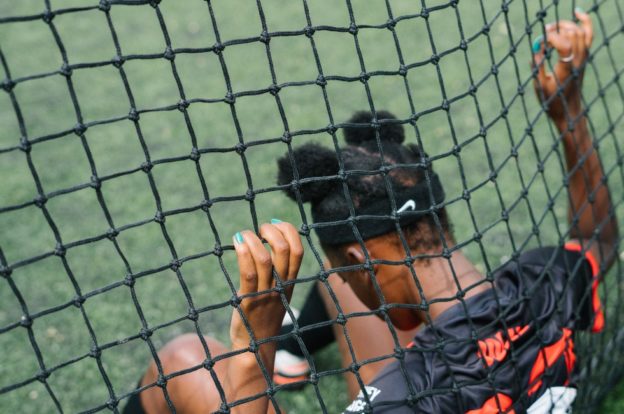In order to be a competitive athlete, women must have discipline and dedication. Their drive to succeed can sometimes push them beyond their limits, leading to injury or a lapse in judgment that could lead to an addiction. With the pressure so intense and the stakes so high, addiction can be more common than you might think amongst female athletes. What drives them to substance abuse? Why do they have a hard time seeking help for addiction recovery?
When the Pressure Gets Too Intense for Female Athletes
The struggle to be the very best can result in a tremendous amount of pressure for female athletes. Many women will compete, and only a few will succeed in making it to the top. The constant stress of training, performing, and competing at their highest level can become too intense for some. Too often, poor performances, injuries, decline or loss of career, and other stressors can push female athletes beyond their ability to cope. Depression, anxiety, and other mental health issues can arise from the stress alone.
All of this pressure can lead some women to try to find a way to cope with the stress by turning to substances like alcohol, nicotine, or recreational drugs, perhaps even at the risk of being caught through random drug testing. Sometimes women can lose sight of their long-term goals by risking everything by using substances to cope. For example, one study on collegiate athletes cited that college athletes have much higher rates of substance use than college students who are not involved in athletics. In looking at sport or team affiliation, the study found that female soccer players at the college level reported the highest instances of substance abuse.
The Dangers of Performance-Enhancing Drugs
The most well-known use of substances amongst female athletes involves those who attempt to optimize their performance levels by using Performance-Enhancing Drugs (PEDs), a practice commonly referred to as doping. While one French study from 2019 demonstrated that elite female athletes generally use illegal substances to enhance performances less frequently than their male peers, doping is still a problem for women.
There are a number of general categories of PEDs that doping agencies test female athletes for, which include:
- Anabolic agents
- Peptide hormones, growth factors, related substances
- Hormone and metabolic modulators
- Glucocorticoids
- Stimulants
- Cannabinoids
- Blood doping
- Beta-2 agonists
- Diuretics and masking agents
- Narcotics
With such a wide array of drugs, the side effects are just as varied, with many of the short-and long-term effects potentially very harmful. In fact, many of these drugs can cause dependence or even addiction. Female athletes also have an increased risk of developing eating disorders.
Treating the Pain of Athletic Injuries in Women
Any type of athletic endeavor carries the risk of injury, including injury due to overuse. Injury means pain, and most athletes try to fight through the pain to continue to perform. In a study published in the International Journal of Sports Physical Therapy, 45 out of 100 female collegiate athletes reported pain, and 52 out of 100 reported an overuse injury. This prevalence of pain and injury demonstrates the high demand for the treatment of pain. Many of these female athletes are given opioid-based or other addictive pain medications that can create more problems in the form of substance use disorders.
When Discipline Gives Way to Addiction
Despite being very disciplined out of necessity, female athletes can find their lives spiraling out of control due to addiction when they use substances to enhance performances, cope with pressure, or treat pain caused by injury. This can lead to dangerous and uncharacteristic behaviors and can also put their athletic careers at risk. Substance use disorders can singularly destroy everything a female athlete has worked for, including her health and well-being.
How Female Athletes Can Seek Help for Addiction Recovery
Given the nature of the industry and the constant pressure of training and competition, female athletes can find it particularly difficult to admit that they need to stop and seek help for addiction. Friends and family may be able to see the risks to health and athletic career from the outside by continuing to use substances to compete. Still, the athlete’s mentality can struggle with the big picture of taking time now in order to save their health and career.
Female athletes also have special needs in treatment that may not be met in traditional co-ed treatment programs. Seeking help for addiction may be challenging for female athletes, but finding the right program can save your career or even your life. Finding a treatment program specializing in treating women and one with experience treating females can be especially important.
Why do female athletes have a hard time seeking addiction recovery help? With the prevalence of substance use as a way to cope with pressure, enhance performance, or treat the pain caused by injuries, addiction is more common amongst women who are athletes than you might think. Taking the time out of an athletic career to get treatment for addiction can be very difficult for a female athlete, but it can also help save your career in the long run. The Ho Tai Way – Recovery For Women specializes in detox and residential treatment for female athletes. Our Costa Mesa, California facility is easily accessible from Southern California freeways. Our program offers individualized treatment plans and a confidential, non-judgmental, safe space for healing. Are you a female athlete who needs help with an addiction? Call us at (714) 581-3974 today.









